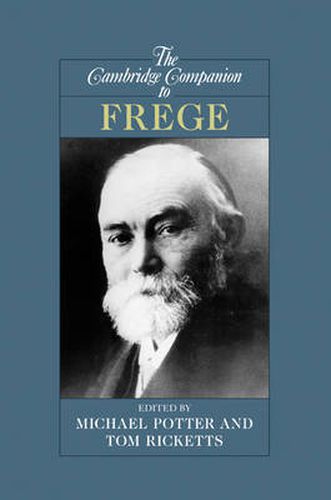Readings Newsletter
Become a Readings Member to make your shopping experience even easier.
Sign in or sign up for free!
You’re not far away from qualifying for FREE standard shipping within Australia
You’ve qualified for FREE standard shipping within Australia
The cart is loading…






Gottlob Frege (1848-1925) was unquestionably one of the most important philosophers of all time. He trained as a mathematician, and his work in philosophy started as an attempt to provide an explanation of the truths of arithmetic, but in the course of this attempt he not only founded modern logic but also had to address fundamental questions in the philosophy of language and philosophical logic. Frege is generally seen (along with Russell and Wittgenstein) as one of the fathers of the analytic method, which dominated philosophy in English-speaking countries for most of the twentieth century. His work is studied today not just for its historical importance but also because many of his ideas are still seen as relevant to current debates in the philosophies of logic, language, mathematics and the mind. The Cambridge Companion to Frege provides a route into this lively area of research.
$9.00 standard shipping within Australia
FREE standard shipping within Australia for orders over $100.00
Express & International shipping calculated at checkout
Gottlob Frege (1848-1925) was unquestionably one of the most important philosophers of all time. He trained as a mathematician, and his work in philosophy started as an attempt to provide an explanation of the truths of arithmetic, but in the course of this attempt he not only founded modern logic but also had to address fundamental questions in the philosophy of language and philosophical logic. Frege is generally seen (along with Russell and Wittgenstein) as one of the fathers of the analytic method, which dominated philosophy in English-speaking countries for most of the twentieth century. His work is studied today not just for its historical importance but also because many of his ideas are still seen as relevant to current debates in the philosophies of logic, language, mathematics and the mind. The Cambridge Companion to Frege provides a route into this lively area of research.